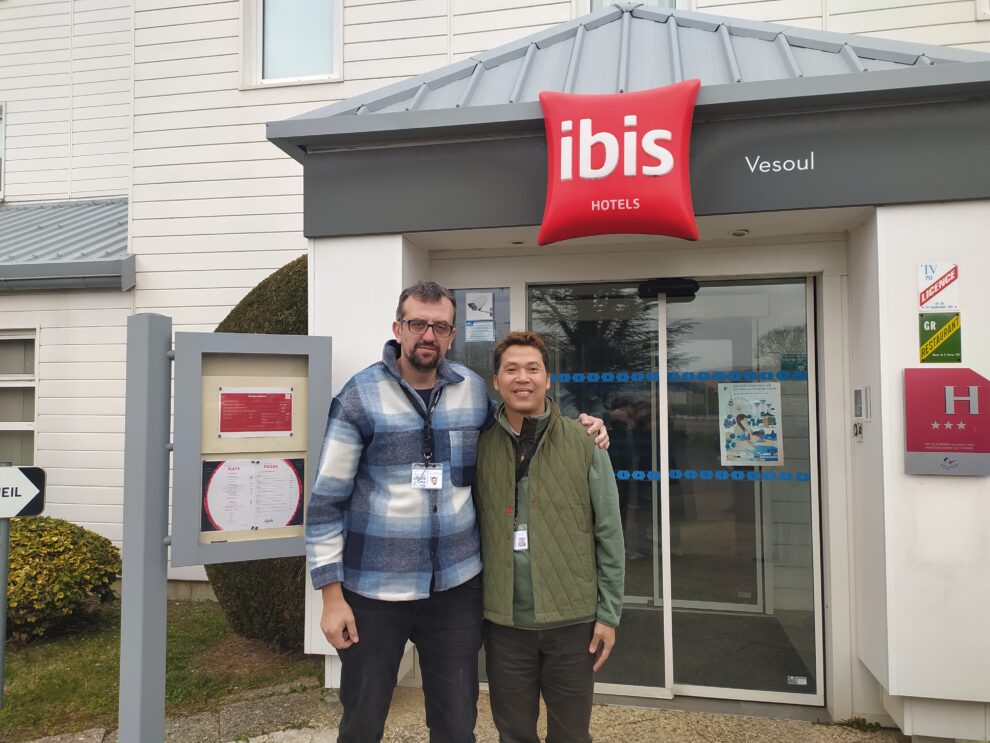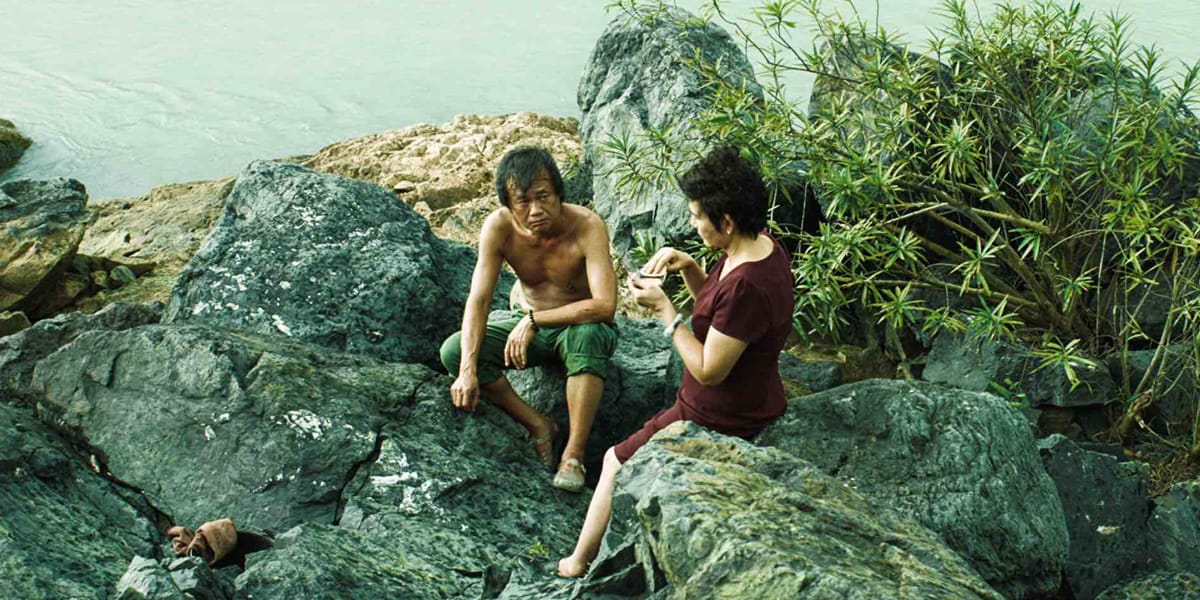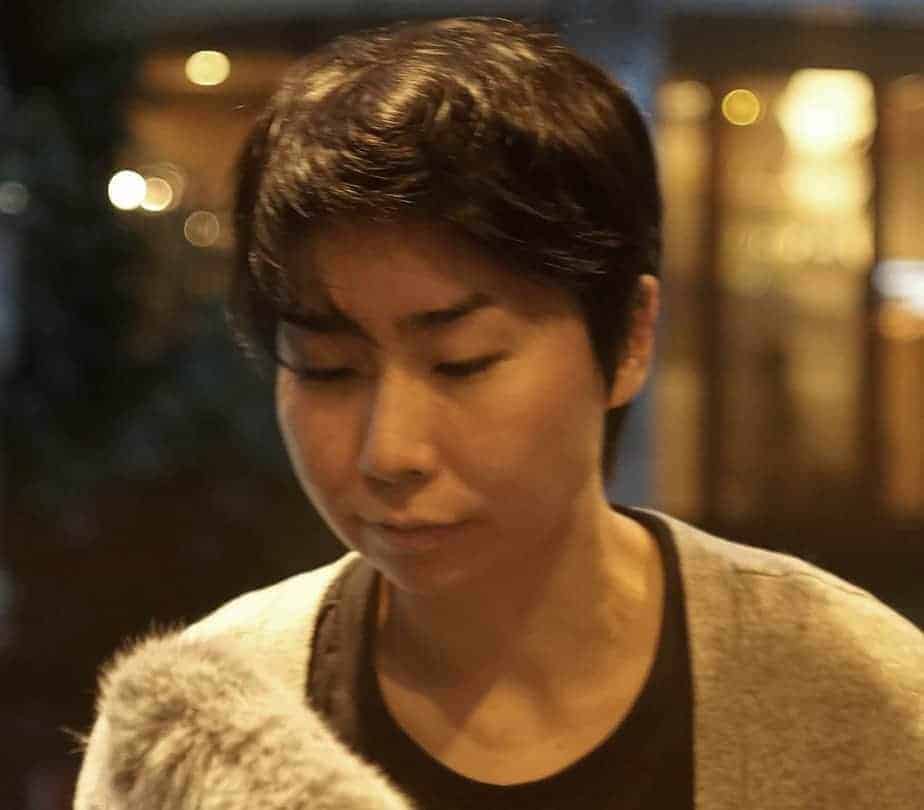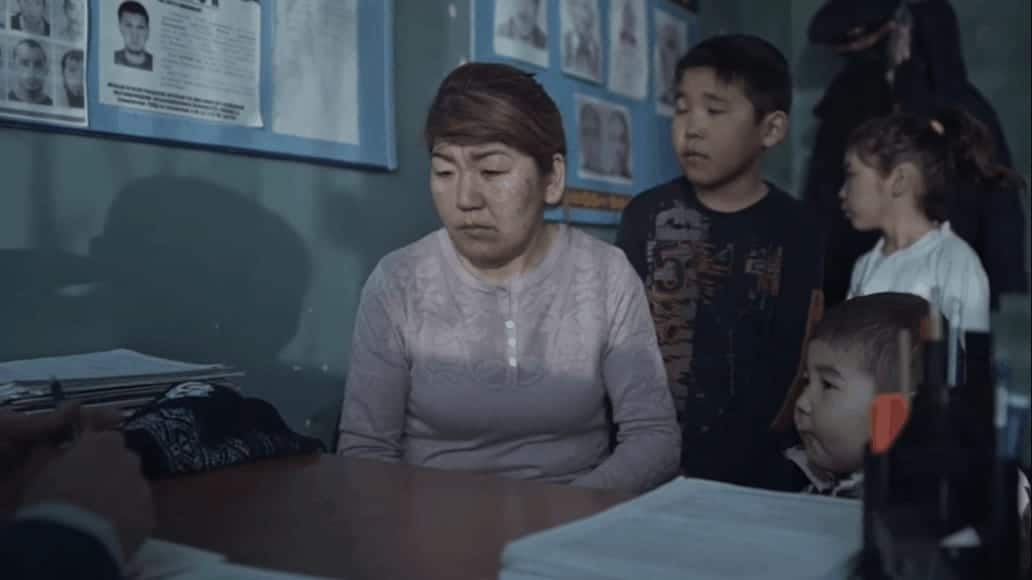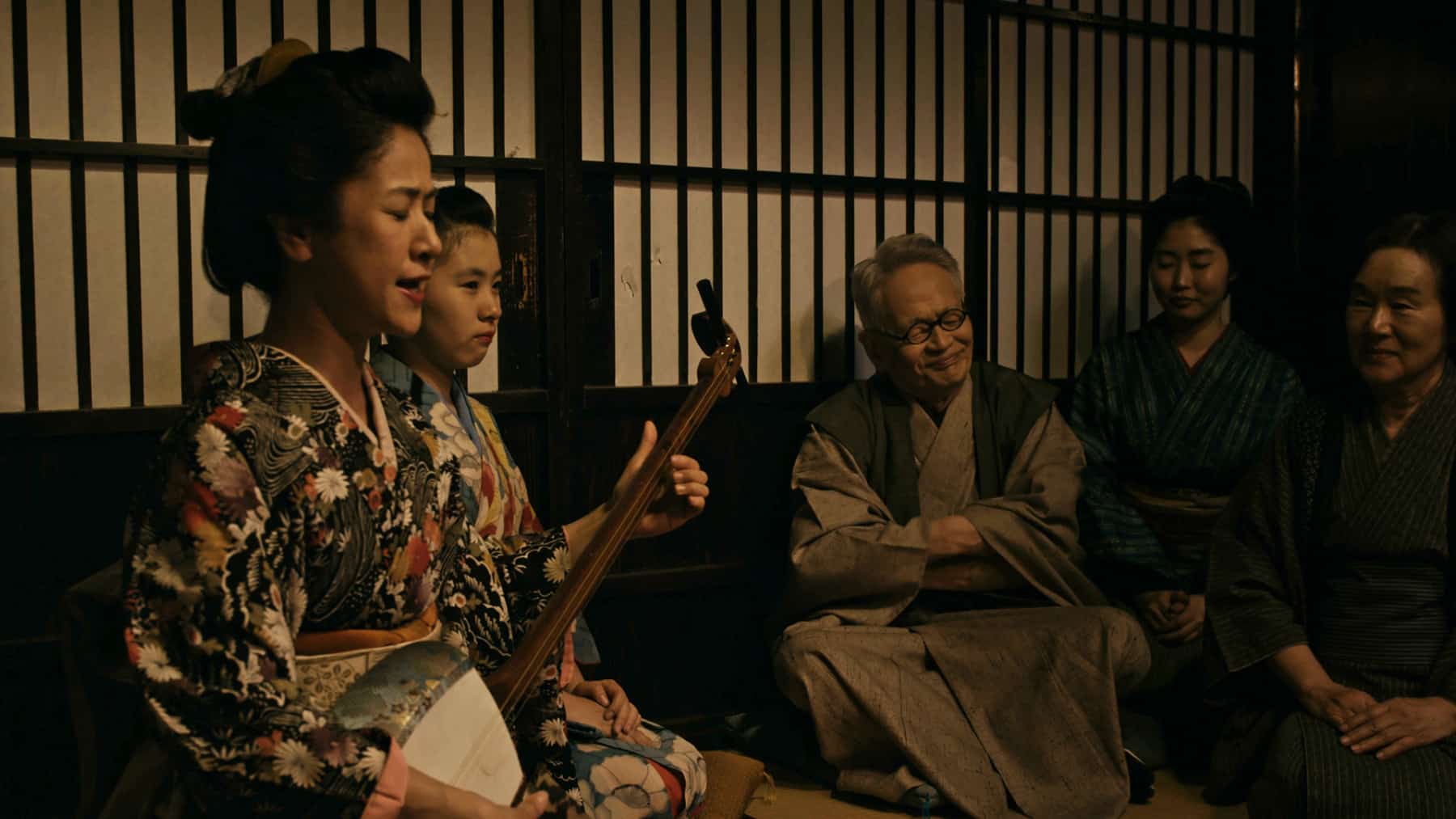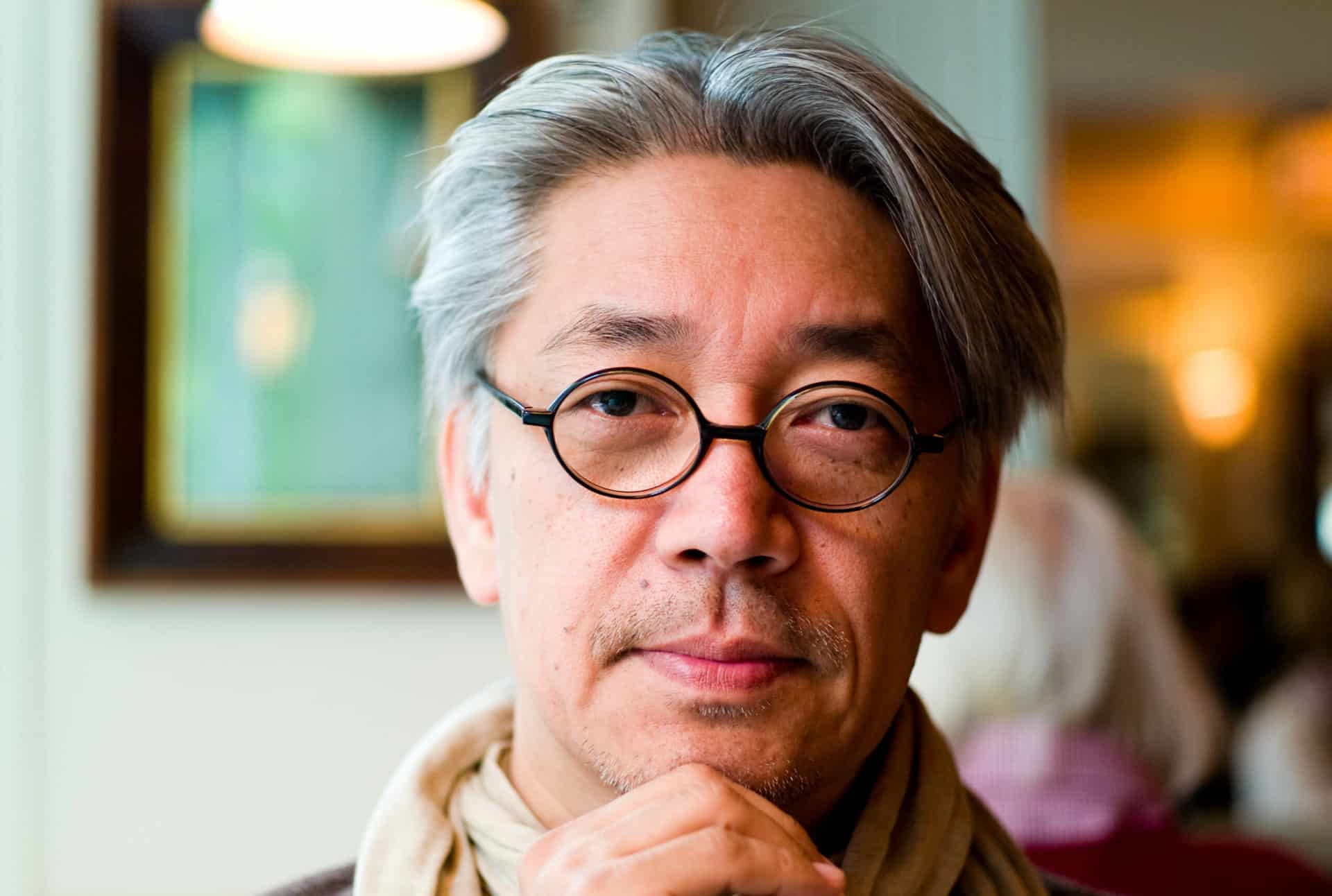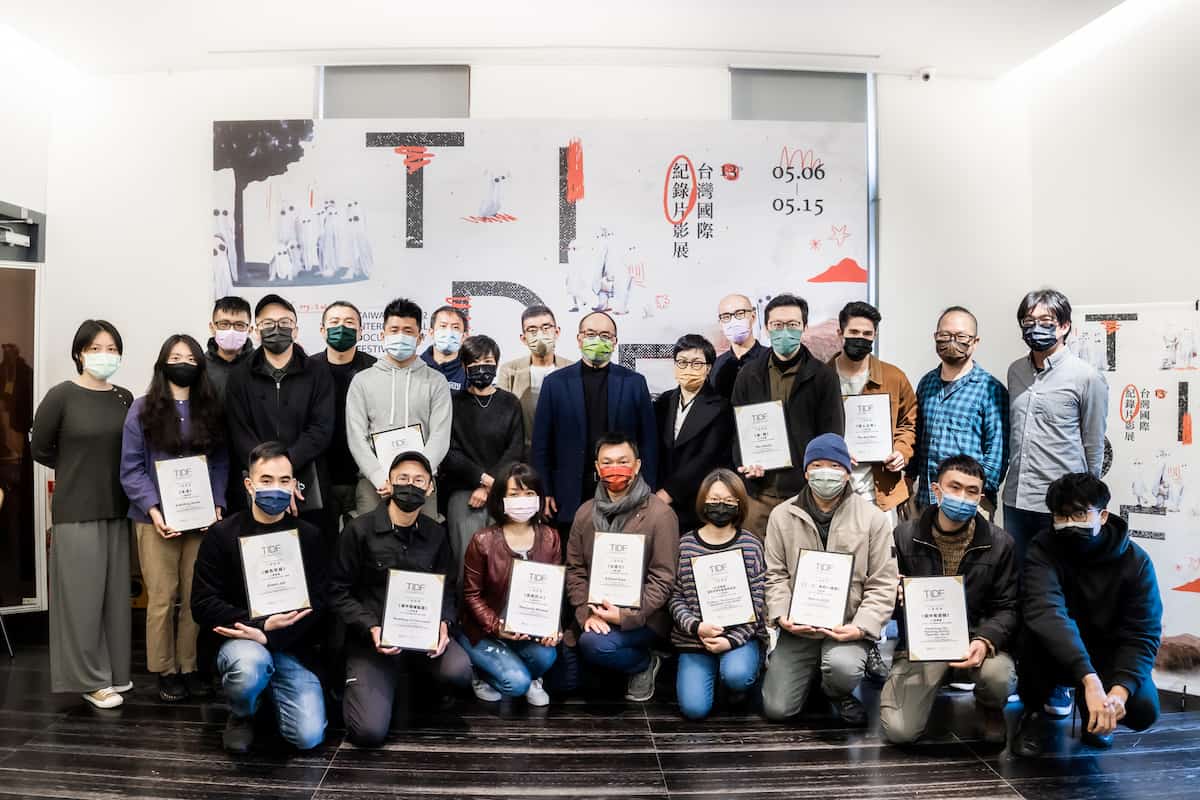Marcus Manh Cuong Vu studied in Berlin and Paris. He began as a film critic for the Vietnamese media at major international festivals. From 2010 to 2014, he was director of the Yxine Film Fest, a pioneering international short film festival in a hybrid form. Since 2015, he has been actively involved in the Vietnamese film industry as a screenwriter, producer and director.
On the occasion of his first feature film, “Memento Mori: Earth” screening at FICA Vesoul, we speak with him about his transition to filmmaking, the locations the film was shot in, the casting, the rest of the movies in the trilogy and many other topics.
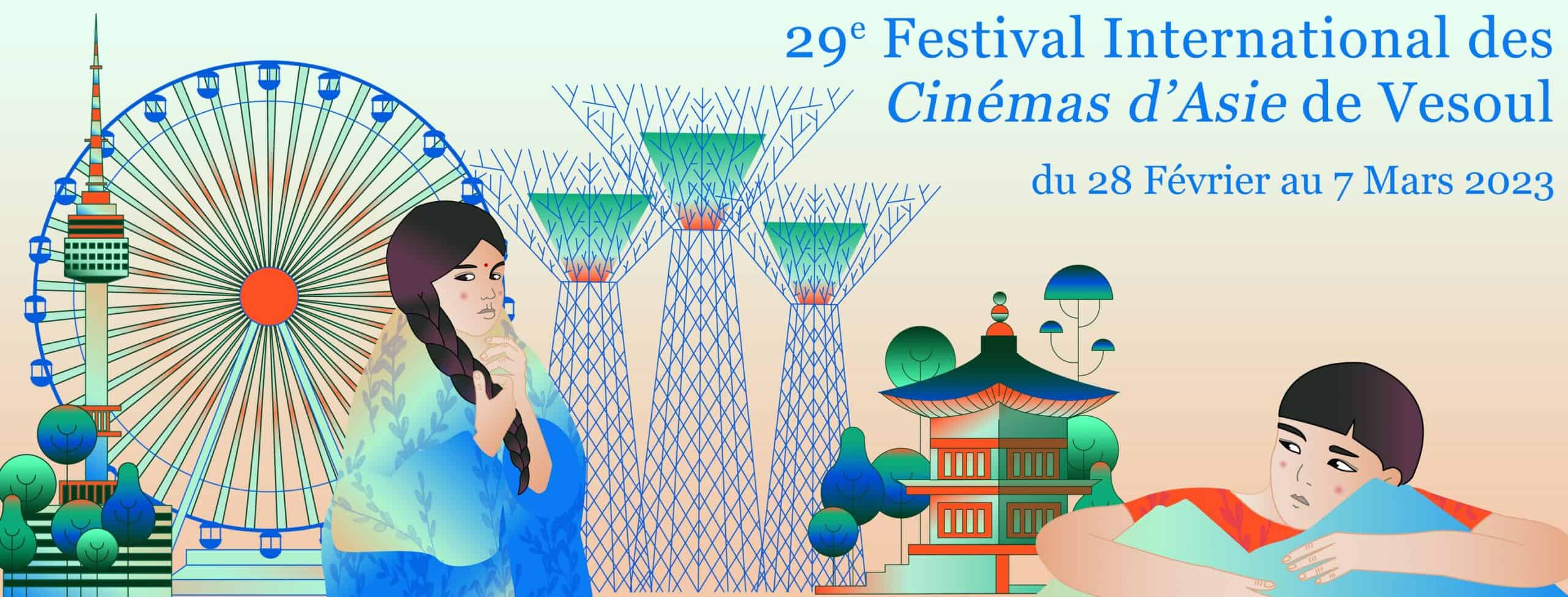
Before becoming a filmmaker, you were a film critic and journalist. Do you think that it played a part in how you direct? Do you sometimes look at your work with the eyes of a critic, or a journalist?
It is a very important question. Actually, the first thing is that I would set my film as a standard, maybe through the standards of critics. Because I have seen so many good films, excellent films, so at least I would try to make my film, at a minimum level, acceptable on the world stage. And yes, it would affect my way of thinking, would affect my way of filmmaking as well. In the sense that because I've seen so many films, from different countries, festivals, and also from many countries that we don't know about. When I direct a film, I think I should have something new to say, in terms of cinematic language, for example.
And yes, that would put big pressure on me as well, while making a film. I did not prepare to become a filmmaker, it just happened to me when I read that book, “Destination of Life”, 5 years ago. And then I thought that it should be crafted on the silver screen, on the big screen. When I talked with the author of the book, I told him that the book is so important. We can learn a lot from the story and the characters, who deal with the question of life and death. I wanted to bring this message to as many people as possible. I told him that I would love to bring it to the big screen, but I will only write the script and I will look for film directors to direct. And yet, it started like this, I made a theater play first, based on the book and it was quite a success in Vietnam. We had 8 different performances in 5 different cities in one year. And then after that finished, I began to write the script.
At that moment I still didn't think that I would become a film director. And then I talked with some of my director friends and said, “Here's the project, and the script, and I would produce this as well. So would you like to direct the film?” And then all of them said, “You have to direct it. It is your project, it is your film. You're the one who should do that.” And I still was not sure about it. Because I think that there are so many great film directors out there, and they can do that. I prefer to stay behind them and support them to do that. But then I received some spiritual messages, that I should do it.
Spiritual?
That means… I can't explain it. It's like something that comes up, and only I can feel that it is coming from the other side, because all the characters in the books died very young. And not so long ago. Last one just died 3 months before finishing the book. So I think they all still have this strong connection, somehow. And that's why I asked the author of the book, “Should I do it or not?” And he said “I always thought you would do it.”
I thought, “Really?” And so it just happened and I just accepted the challenge to become a film director. I know that it's a big challenge. I was not trained to be a film director. I have been working in the film industry in different positions. First of all as a writer, film critic, film journalist, and then, festival organizer, film programmer. And then as a film producer, assistant director, and so on. But I never thought that one day I'd become a film director. I still want to write criticism about films, you know. And just recently, my film premiered in Busan, and I met some friends, filmmakers from Southeast Asia, and Bradley Liew, a Malaysian film director. He asked me, “So now how do you feel? Can you still write as a film critic, or not?” I told him, “I don't think I can write as a film critic anymore.” Because being a filmmaker and making a film myself, I get more insights from the other side of film, and it's not that glamorous, not that easy. And so maybe my perspective on writing criticism for films would not be accepted anymore. It would be more subjective.
Tell me more about the locations, they felt very important for the film.
Since the time that I made the theater play, we traveled to different provinces and cities in Vietnam. In each place, I adapt the mise-en-scene to the location. Also, I put some cultural elements from that location into each place. So for me the locations, the environments are very important. To do the research for the film, I traveled to a lot of different places in Vietnam. And during the theater play, we traveled to Da Lat, which is a city on the highlands of Vietnam. Where they plant coffee, for example, which is one of the most important agricultural products in that region. And then I learned how they did it, and I met people, the farmers and the coffee producers. And got insightful information about the life cycle of the coffee, and specifically when I see the coffee fruit from close distance, it looks like a cornea.
I felt a connection there, so I decided to bring the story into a coffee farm, and on the highlands, and to put the life cycle of the coffee as a metaphor, or a symbol for the expression of life and death in the film. Then I traveled back and forth many times to meet people, to look for suitable coffee farms. It should be a remote area, and yet luckily, after a few location scoutings I found the location which I chose for the shooting. And then also, the location of the immortal flower plants, that also looks like an industrial zone, as the house of the father.
I found the location accidentally, when I wanted to know more about how the immortal flowers are planted. I met a flower-seller girl at a market at Da Lat, selling normally the immortal flowers that we got in the cities. In the cities, they are not fresh. They still look very fresh, but they are already dry flowers. I went to Da Lat for location scouting and I knew that they planted this immortal flower in the area. I came to the market at Da Lat and I met that salesgirl and I asked her whether I can go to their house to see how they plant the immortal flowers. Her house was very simple, with the immortal flower plants, that's also in the industrial zone. Which they had left already. They just needed it when they built up the road, but now it's shut down. It's like a shut down factory.
After many times of researching all these locations, location scouting, this house came up and helped me to build up the script. Because I adapt my script to the location.
Why did you decide to have the topic of organ donation in the film?
It came from a real story. That was something that impressed me the most, that the main character, the woman that is dying, is a very ordinary woman from a poor family in a remote area, in the highlands. And she did not get much education either, but she got the idea of organ donation, and she fought for it. That was something that impressed me so much from the book, from the real story. I thought that for sure that should be the main topic of the film, her fight for organ donation. And then I did some research to know more about organ donation, which is still a taboo topic in Vietnam.
But besides that, there is a black market for organs. These black markets even take place under the sun, as portrayed in the film. The sellers, they just stand in front of the hospital, trying to pick up the people. There is also, even, farming of these organs. That means that they know that you need money, they pick you, and they will feed you, during a few months. You come to the place, and you live there, and they feed you everyday, so the organ would be good for the transplant. And that is so crazy. I tried to put that aspect into “Memento Mori: Earth” as well, when the husband needs to face donating an organ, in front of a market. I did not go that far in that way to focus on the organ trade, because I wanted to stay more focusing on Van, and her story, her own wish, and the tension between her and the family members, specifically the father and the husband. Nevertheless, I put that aspect into the film as well.
Check out the review of the film
Tell me a bit more about the casting, and how you collaborate with your actors. Because it's not easy, what they are doing. It's not straightforward acting.
I did a big call for casting in Vietnam, throughout the country. And I did casting in Hanoi, Da Nang, and Ho Chi Minh, the three big cities of Vietnam, during one month. Even after the casting call, I hadn't found exactly the actors and actresses that were suitable for most of the roles, so I continued to look for them. Like one-on-one casting. For the main actor, to play the role of the husband, Hoang, I coincidentally saw him in a trailer for a dance theater project. He is a hip-hop dancer, and when I saw him in that trailer, he appeared only for like 15 seconds in a 2 minute trailer, and I immediately realized, somehow, that I needed to meet that man.
I tried to contact the producer of the theater project, and made an appointment with him. And when I came to the rehearsal of the theater project, at first I didn't meet him, but I met the producer of the project. At that point, I didn't know that she would later on be my choice for the main actress. At the time, I just wanted to meet the young man, and I met him and talked to him. After 1 hour, I tried to immediately bring him to meet another candidate for the main female character. And he traveled with me on his motorbike, through the busy streets of Ho Chi Minh, and we came to the casting location.
That afternoon, I knew I had found my main actor, that he would be the one. Because somehow I had the impression that he has this insecurity in his appearance, and also that he has something inside that I can dig out from him. And also very important for me is that, because I am the kind of filmmaker that would minimize dialogue as much as possible. I don't like to use dialogue in my films. Therefore, physical appearance is very important. And I think that the dancers are capable of that. They are able to express the sentiments, the feelings through gestures, through their physical appearance. That's why when I call for the castings, I also focus on inviting dancers to castings.
For the main actress, it was very, very difficult. It's a very challenging role, and I hadn't found the main actress up till 2 weeks before the main shooting. I made a few secondary shoots before the main one, because we shot during one year. And at some point, I got some favorites for the role. We shot during the first year of the pandemic, 2020. And so there were some conflicts in the schedules of the actresses as well. One of my favorites for that role used to be Miss Universe Vietnam, H'Hen Niê. And when she competed for Miss Universe 2018, in Thailand, she was placed in the top 5. So she was very famous in Vietnam, and I liked her very much. She's also an ethnic minority, coming from the highlands, and she comes from a coffee farmer family. So she was one of my favorites (for the role). For one of my secondary shootings, I shot with her as Van. But then because of the pandemic, and the conflicts with her schedule, I could not cooperate with her anymore.
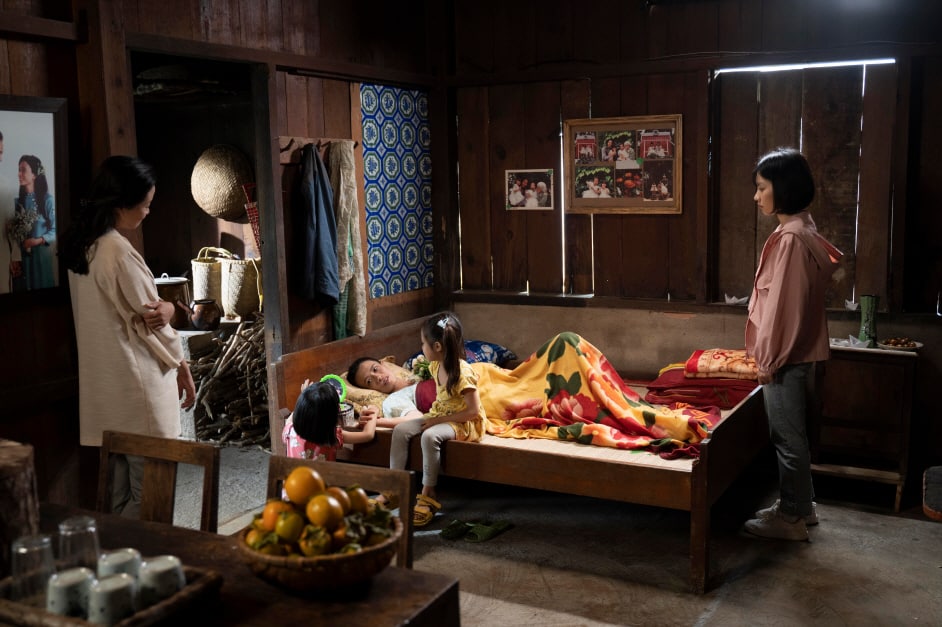
And then I needed to find other options. It was always like, there was a moment I would think, “Yes, that should be okay” and then the next day I would think, “No, it would not be a good choice anymore.” And I was so desperate you know, like “Oh my God, the main shooting in September”. And in August I still hadn't found my main actress. And one day, I remembered that the producer of the dance theater project turns out that she's the girlfriend of the main actor I chose. I asked him, “Can you bring your girlfriend to the next rehearsal? I would like to meet her.” And she came, and I tried to give her some challenges. I also remember that afternoon, it was raining heavily in Ho Chi Minh, and I knew that I found the main actress. I phoned her later that night and told her, “I would like to have you for the role.” But she was very busy at the time. She works as a producer for many exhibitions and projects, arts projects. She's a multi-disciplinary artist. She did performances herself as well, making short films and so on. But yeah, the very next day she told me that she could do it. And I was so happy that I found her.
The next two weeks, before the shooting, was just a very intensive rehearsal with her and with the main actors to prepare for the role. And I also brought them earlier to the location before the main shooting so that they could feel the space, feel the location. I also booked one full day in that house, the wooden house, so that they can stay there and feel the space, and they could do what they wanted. And then luckily, they settled in very well, and they also created some improvisations, and based on those, I could create even more. As an independent project, it's very low budget, super low budget. We had to prepare in pre-production as much as possible, so that in shooting we keep to schedule. We could not have excess, like one more day of shooting, it would cost us very much. So we tried to prepare as much as possible beforehand, and in the shoot with them, they gave incredible performances. They sometimes create this atmosphere. Like a real atmosphere. And we all, not just me, the DOP, and the crew, they all feel that. And we try to make the best from that.
This is planned to be a trilogy, so where do you plan to go with it literally, and metaphorically?
In “Memento Mori: Earth”, there is a scene where 2 other women come to visit. These 2 other women will be the main characters of the second part and the third part of the trilogy. The second part is called “Memento Mori: Water”, and follows a young mother, about 35 years old from a big city in Hanoi. She lost her kid, a son, when he was diagnosed with bone cancer when he was 7 years old. And she, as a businesswoman, a very busy businesswoman, is living in an unhappy marriage. So practically, she's like a single mom. And after she loses her son, she has to learn how to grieve for that loss. And that film will follow her journey. Part of the film will happen in Japan, because I have her as a businesswoman having a business trip in Japan. So after Vesoul, I will go to Hiroshima and Fukushima for one week for location scouting and to meet people. According to the invitation of the film commission there, I will go to Japan. And I hope that we can shoot it by the end of this year, that's the earliest. I have to wait for my main actress as well, because she's pregnant right now.
The third film “Memento Mori: Fire” will follow a young woman of 18 years old; she's in the last class of highschool when she discovers that she has breast cancer. She doesn't want to get treatment and she wants to continue to live. She wants to finish highschool, she wants to live her dreams of becoming a singer. She likes to sing. And she goes on her own journey of discovering the contemporary music scene in Vietnam, and meeting many strange people, new people, musicians and bands and so on, of the independent music scene in Vietnam. This maybe would be the most challenging film for me because I follow this character that projects herself in other people, so it is quite a challenging approach. It's very ambitious. I'm still developing the script, and in researching the contemporary, independent music scene of Vietnam during the last month, I've been wandering and meeting musicians, young musicians and songwriters and singers. To feel the spirit of this young generation. It will be a long journey for me as a filmmaker to complete the trilogy.


